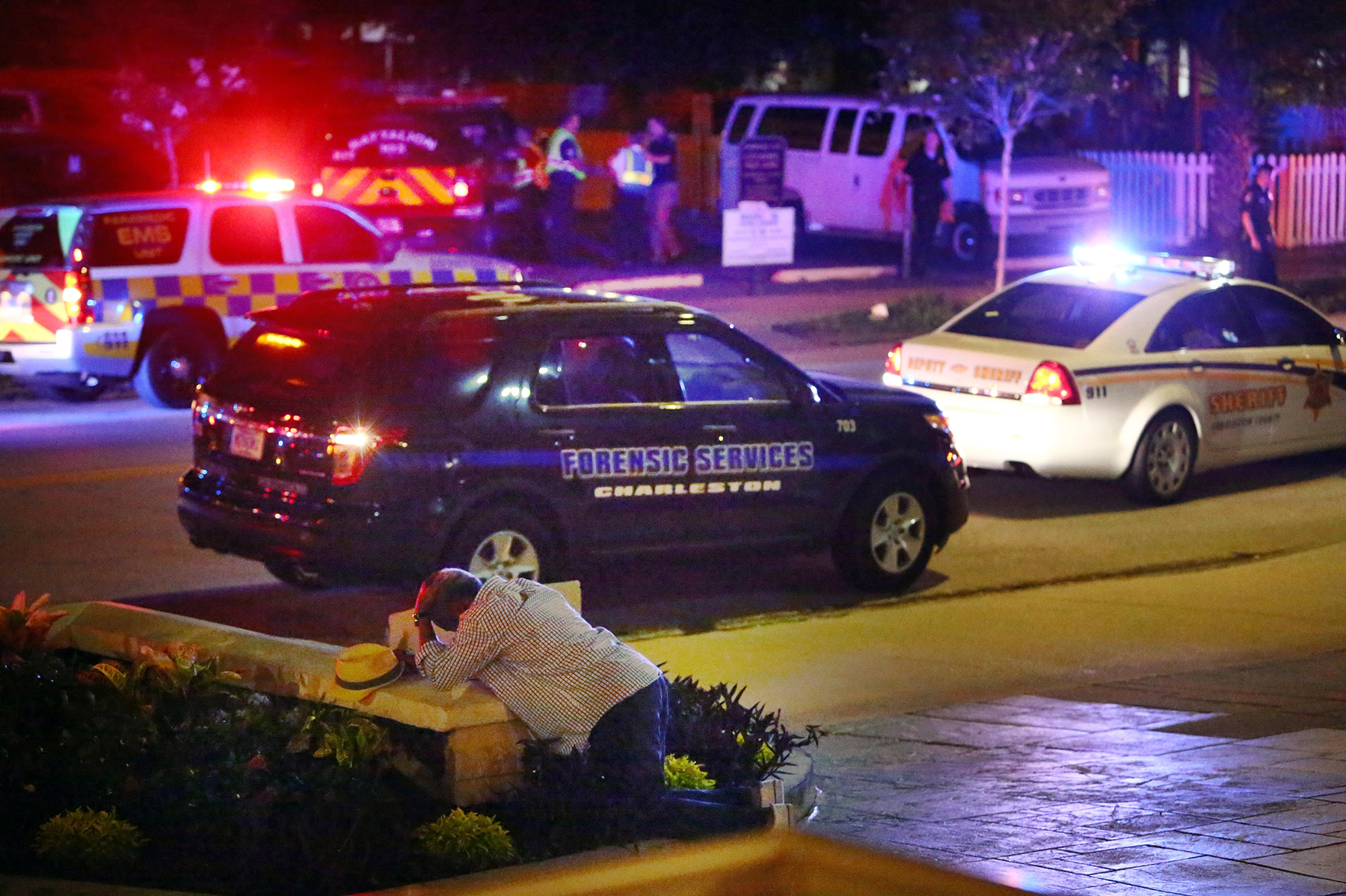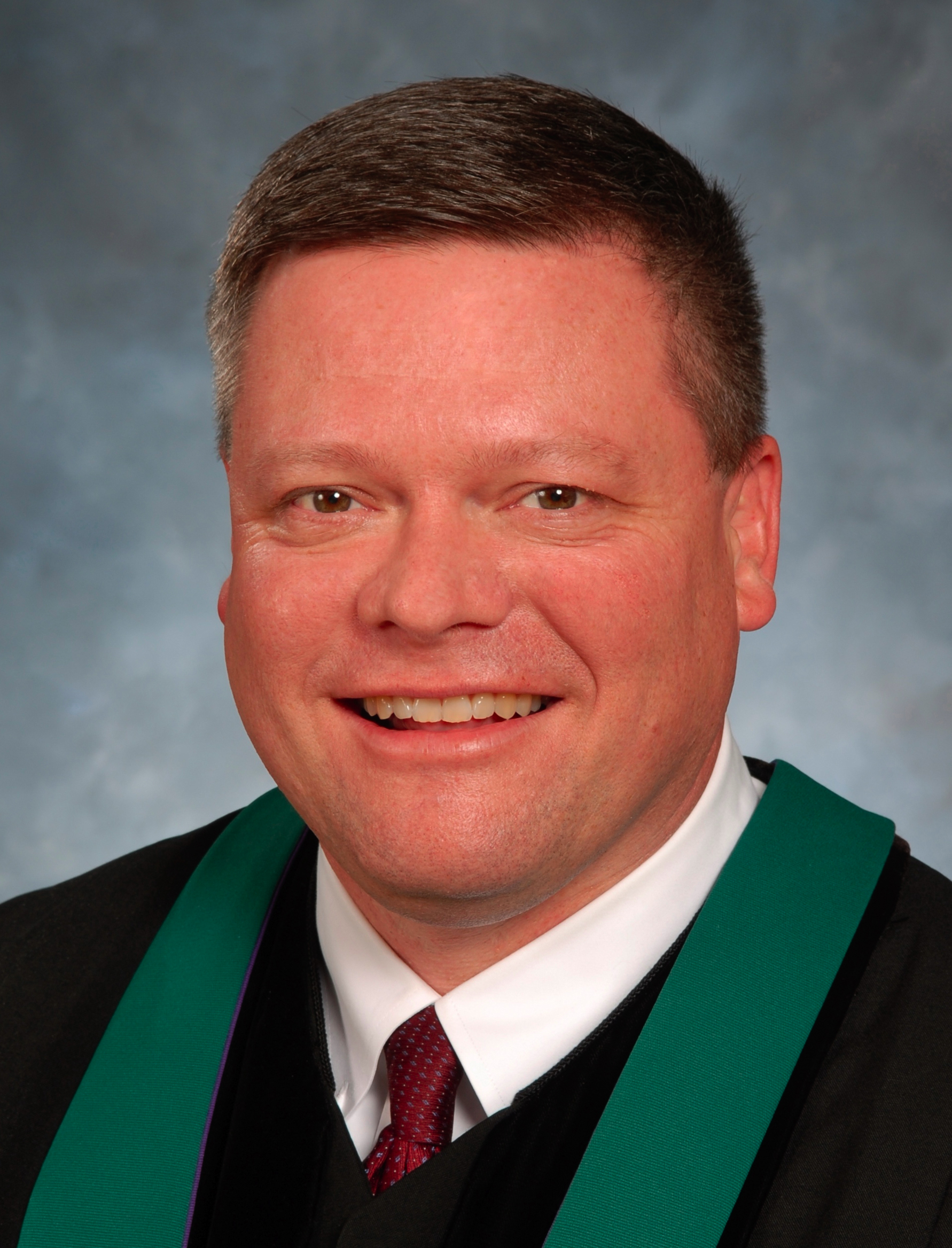A Healing Response for First Responders
Posted on Sept. 12, 2018
First responders deal with tragedies like the shootings at Emanuel AME Church in Charleston, S.C., and many that get little notice elsewhere.(Wade Spees/The Post And Courier via AP)
When the Rev. J. Eric Skidmore ’83 recalls growing up, he sees role models — some famous, some on a path to fame.
His hometown is Montreat, the North Carolina mountain community where the late evangelist Billy Graham based his global ministry. Skidmore’s homeroom teacher at Owen High School was Roy Williams ’72, then a local basketball standout.

Rev. J. Eric Skidmore ’83
He came to Carolina planning to follow his father into a career as an accountant, but the guidance of another role model — in the person of renowned religious studies Professor Grant Wacker — showed him connections among faith, life and the civil order, and he put Skidmore on a path to seminary and to becoming a parish pastor.
But Skidmore says it was unsung heroes who ultimately had the greatest role in shaping what he does. In 1994, after he became a volunteer chaplain with the South Carolina State Police, he saw those heroes in the officers, staff and their families he would counsel and comfort after traumatic events. The need was great: First responders not only face events that regularly make national headlines — notably shootings at churches and schools — they also experience the emotional toll of investigating horrific crimes and sudden deaths that may get little notice beyond their communities.
“The more I worked within the culture of law enforcement, it was evident that it was underserved,” said Skidmore, who left the pulpit in 1997 to become program manager of the S.C. Law Enforcement Assistance Program. Based on an FBI model, SCLEAP works to provide a safe forum, led by trained facilitators, in which participants can talk openly and heal without fear of judgment or detrimental effects on their careers.
Skidmore talked to the Review about his work.
There were few public-safety chaplains across the U.S. 20 years ago. What convinced you that this was your calling?
As a theological framework, I have great compassion for the men and women in law enforcement who do what they do and sacrifice for the cause of justice. It’s a privilege to provide support and advocacy to these people, who have been through a lot in recent years. It takes a long time for them to trust you and feel that they can come to you in their worst moment. They’re really not interested in preachers who want to be cops or someone who will be a pipeline to their supervisor.
If you’ve been involved with one of these critical incidents, you need to talk about normal reactions to abnormal events with others who have been there. Participants in our seminars feel they can speak openly because everybody in the room understands perfectly that they had a half-second to decide what to do.
SCLEAP counseled people who responded to the 2015 shootings at Charleston’s Emanuel AME Church and other high-profile events. Who needs help after such experiences, and what are the biggest barriers to getting them that help?
I think of law enforcement officers as athletes, in the sense of their own resiliency that’s developed over time and their coping mechanisms. They develop an amazing ability to compartmentalize things, but sometimes they can’t keep the stuff in the box.
Some are referred and others come on their own because they realize something isn’t right — they have trouble going by the place where it happened, they can’t sleep, they drink more than normal, they’re mean to the people who love them the most. We help them learn techniques to get past what changed their life so radically.
A lot of these guys and gals don’t make much money, especially early in their careers. We have a foundation that helps with co-pays [for officers who need counseling beyond what SCLEAP can provide] so they never have to choose between getting well and taking care of everything else in their life.
What accounts for what you’ve called the long “shelf life” of effects from such events?
I teach at a public safety chaplaincy certificate program at the Lenoir-Rhyne University campus here in Columbia [S.C.]. We took a group of cohorts to Virginia Tech to meet with guys who were part of the entry team at Norris Hall, who were coming in as the shots were fired [in 2007, when a former Virginia Tech student shot and killed 32 people on campus before killing himself]. As we talked with them, you could clearly see how they were still dealing with the horror. I see that over and over again in the work that I do.
We developed a new program addressing sudden and traumatic personal losses, which are different from having been involved in a chase or fight or fatal shooting. We’ve had officers who responded to a collision and didn’t know when dispatched that it was their wife killed in a wreck. We had an officer whose child took his life and others whose children died of sudden, acute medical issues. They need support and tools to cope before returning to a job where they could find themselves in similar or worse situations.
What have you learned about these circumstances that you didn’t know 20 years ago?
It’s a very closed culture — they are not very trusting of folks outside of the realm of public safety and law enforcement. It’s one of the reasons that peer support works so well; it provides instant credibility.
We recently started a check-in system with our crime scene personnel where we invite them to an offsite location to talk. Their work is nothing like the CSI television shows. It’s a high-risk assignment because of the constant exposure to the worst things one human can do to another. The check-in is not evaluation of fitness for duty — it’s about their wellness and the resources available to them.
We also reach out to people who don’t typically go to crime scenes but can have similar experiences. I got a call from a sheriff’s office when one of their senior telecommunications dispatchers died of a heart attack. When someone in your home has a heart attack, you call 911, right? When his wife called, the people who picked up the phone were his co-workers. It became very personal.
How do you manage your own stress that results from traumatic events?
I talk about it with the peer team members I work with as a way to get the poison out. I also talk with a close friend in Chapel Hill, Dr. Tom Griggs [’65; ’69 MD]. He was a physician for the N.C. Highway Patrol and a cardiologist for the UNC School of Medicine. I call him for comfort and just somebody to talk to when it happens yet again. He often says, “It never ends, does it?” It reminds me of the importance of being there for officers that put themselves at risk every day trying to keep things safe for the rest of us.
— Jill Warren Lucas
Thanks for reading the Carolina Alumni Review
Carolina Alumni members, sign in to continue reading.
Not yet a member? Become one today.
